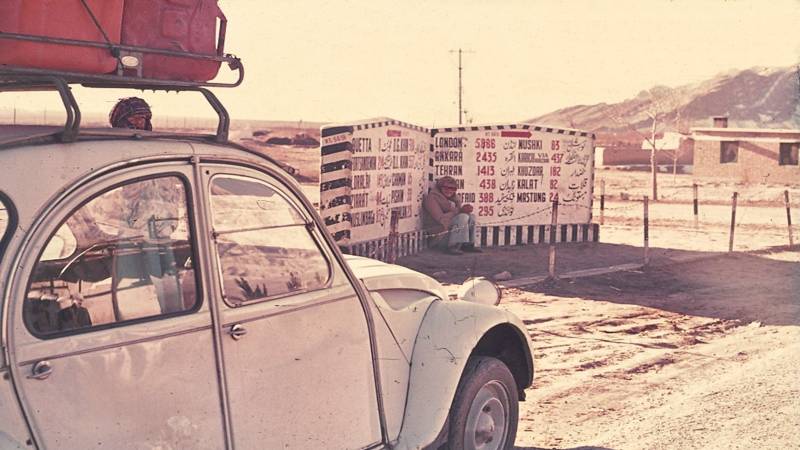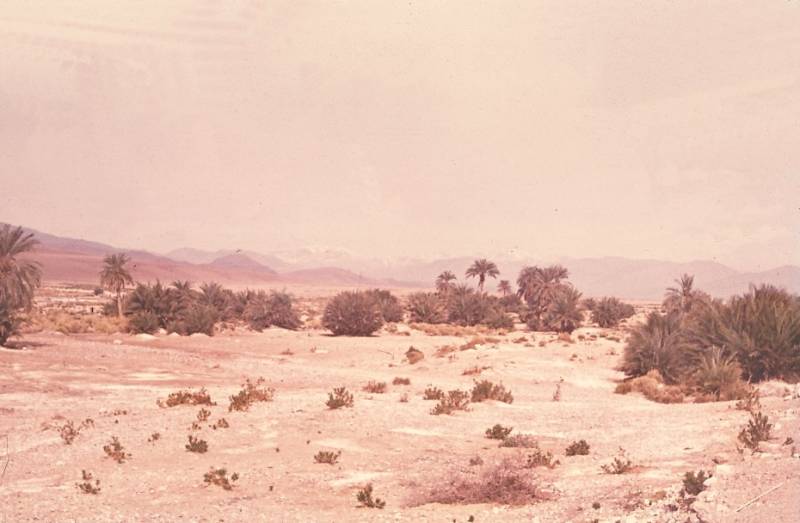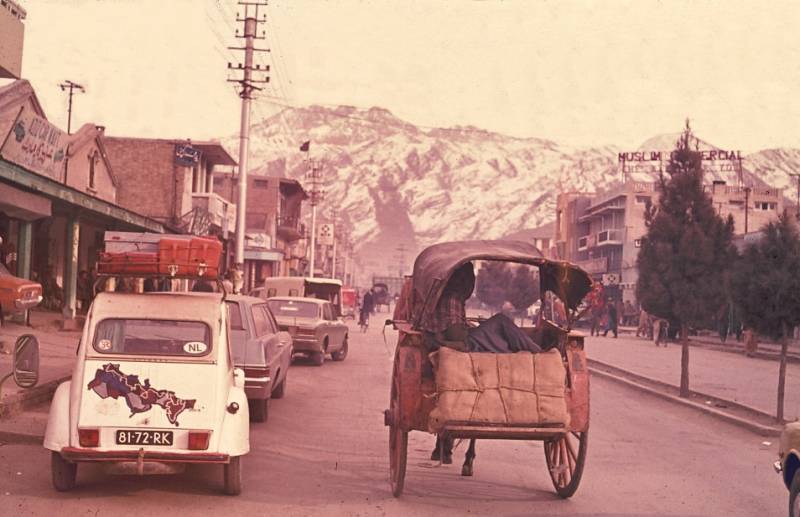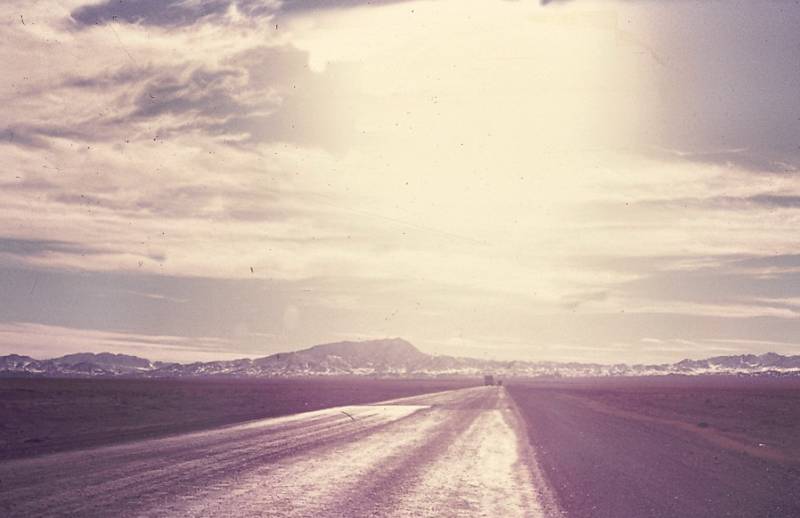
After having crossed the border from India into Pakistan, I was looking forward to visit the famous towns Harappa and Mohenjo-Daro which are two places from the Indus civilisation built around 2600 BC. Both towns are in the south of Pakistan, therefore going all the way north again to get to the border with Afghanistan will be a large detour. Although completely deserted, I have a look at both sites which are quite a distance from each other. After this visit, I decide not to enter Afghanistan from the Khyber Pass in the north again, but to follow the road to Quetta. This Pakistani town is near the southern border with Afghanistan, so from there I can still decide to go to Kandahar in Afghanistan or take the track through Balochistan to Iran. Balochistan is a region which is divided into three parts. Pakistan has the largest part, second is Iran and just a small part belongs to Afghanistan.
While being in Quetta, it is already minus 10 degrees Celsius during daytime. I let somebody take a picture of me at a big road sign nearby. I see the names of some well-known towns. Tehran, Ankara, and even London which is located 5,886 miles (9,417 km) from here.
The police in Quetta stops me while I am heading towards Balochistan. Although the situation in Afghanistan is getting worse, it is much safer to go through Kandahar, Herat and straight to Tehran rather than taking the completely deserted track through Balochistan. It is wintertime and the Baloch cannot cultivate enough food in the snow-covered desert. They are attacking people that are passing by and will take all their belongings. "Even your car!" To avoid more snow in Afghanistan, I decide to continue my way onwards. Hopefully, I will not encounter those unfriendly people.

The road from here to the border with Iran is quite bad. Some parts are covered by snow and some parts are just a simple trail. The track is hardly used but when the new section in Iran will be ready, Afghanistan could be avoided. There are already rumours about the weak situation of the Afghan president Daoud. This track follows an old railway from Quetta all the way to Teheran through the completely empty Dasht-i-Lut. No trains are running on this stretch anymore but it will help the road workers to find their way through the semi desert.
After a couple of days, I arrive at Nok Kundi, the last town before the border with Iran. The customs officers are very friendly. However, they warn me for the Baloch who are carrying Kalashnikovs. "It’s better to go back." I refuse to follow their advice, so they stamp me out of their country. It will be all at my own risk from now on.

After a long ride, I arrive at the customs of Iran. There is no traffic, therefore passing the border was going pretty quick. Although they do not send me back to Pakistan, they still warn me for bandits – of course, they will be Pakistani Baloch and not Iranian! “Keep going while diverting to the right side of the road from here and stay calm in case of emergency. We cannot guarantee you a safe trip!” In the meantime I seriously start worrying about staying alive while being persistent every time.
What can I do to save my life here in the semi desert in Iranian Balochistan? Why did I not listen to the officials at the borders?
While passing the famous town of Bam which would be destroyed by an earthquake many years later and is now covered in snow, I suddenly spot a big truck up ahead. It is approaching me but the truck follows another track parallel to mine about 100 metres away from me. The drivers and I cannot see each other well, but I just wave to them. At the end of the day, I am looking for a safe place to park and spend the night in my car. I find a section without snow and luckily there is a deserted and ruined house made from clay and stones in sight. Although there is no traffic at all it is better to park my car around the back of the house. I am not scared at all but the fact that I am hiding myself behind the house gives me some thrills anyway. While it is getting completely dark, I prepare some simple food. After an hour, I close the curtains of my 2CV4 and try to get some sleep. The complete silence in this semi desert would make me dream peacefully.

Breaking the silence, I hear a big truck coming nearer. Suddenly headlights are pointed at my car. I hear the engine of a truck being turned off. I peep through my curtains and I notice a man in a Balochi dress getting out of the truck. He has a Kalashnikov hanging around his shoulders. He knocks on my door. I am in shock now. What do these armed Baloch want from me? Will he just ask for some food? Maybe he will even confiscate my car! I cannot refuse to open my door. I can hardly see his face because of the way he is dressed. In broken English, he asks me if I am doing all right. I want to say “yes”, but then he asks me if I am alone. I tell him “no” as my “friend” is somewhere out there for a pee, even though that is completely nonsense. They will definitely wait until my “invisible friend” is coming back. My differing answers of “yes and no” on his questions confuse him. He asks his mate to leave the truck as well, and within a minute two heavily armed Baloch are standing at the door of my car. The only light around us are their beam lights. This problematic situation completely takes my breath away. Will this be the moment that my trip from Amsterdam to India and back home will end being all alone? What can I do to save my life here in the semi desert in Iranian Balochistan? Why did I not listen to the officials at the borders? Both the Baloch notice my fear and they do their best to calm me down. They stop asking me questions and start to tell their own story.
“We are Iranian Baloch road workers. We have seen you already today, driving your white car and waving at us. We are seriously concerned about you. Do not fear, my friend! We just wonder why you are stranded here in the middle of nowhere. If you need some help, please ask us for assistance!” I am completely flabbergasted because of all the many concerning stories I was told before – while this moment shows the complete opposite! One of the Baloch walks to his truck. Half a minute later, he is back again, and he offers me a full pack of English cigarettes and I even get five big fresh oranges carefully laid down on my lap. It’s like a sweet dream! I thank both the friendly Baloch for their welcome presents and tell them I will continue my trip at sunrise. They agree and while honking their loud horn in the middle of the desert, they leave me in complete darkness.
I do not sleep very well, but being aware that the rumours do not always have to be true, I continue my trip the next morning with great pleasure, not knowing that the next problem will be snow. Even the tarmac roads in southern Iran are hardly passable. I did not bring snow chains from Holland because I was not expecting snowflakes.

